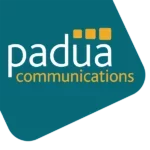
Our guest blog this week is from Ann Wright of Rough House who shares her insight in becoming a media expert in your field.
When you switch on the TV and see your competitors giving considered opinions about your area of expertise, do you want to throw something at the set?
Why didn’t they call you? After all, you know more than them – of course you do.
And as long as you do know your field well, there’s no reason why you can’t become the media’s go-to expert in your field.
Once you’re known by a journalist as a trusted source of expertise, they will return to you repeatedly whenever a story breaks related to your specialist subject. It’s far easier for a journalist to turn to their contacts list than to start trawling around afresh for someone to talk at short notice.
But you have to make it happen. There are several steps to that process:
Letting the media know you exist
- If there’s a story relevant to your field which you’ve got an opinion on, then contact the media and tell them. Email into a newsdesk or named journalist, make a quick phone call, issue and publicise a press release with your views. Yours might be exactly the fresh angle they’re looking for to take the story on.
- Make sure you can be found online. The first place the media look for experts (apart from their trusty contacts book) is via a search engine. If you don’t pop up on page one or two then it’s unlikely you’ll get a call.
- Let the press office of your professional body know that you’re happy to be contacted by the media if they get enquiries.
- Register with websites which list media experts such as FindaTVExpert or Expert Sources. By doing this, you’ll ensure that if the media use these to find an expert in wine-making, or the demise of the common bee, or the use of homeopathy to cure asthma, then they’ll come to you.
Proving your credentials
- Make sure your website includes your biography, showing that your training and experience are relevant to whichever subject you’re claiming to be an expert in. For example, it would be no good my claiming to be an expert in tree surgery – one quick look at our website would show that that is complete rubbish.
- Have a blog which demonstrates your knowledge and shows that you have valid opinions in a range of topics.
Being available
- If you get an inquiry for an interview, you must be able to do it – the first time. If they call you and you’re in a meeting, or say you’ll call back and don’t do so, they won’t bother to call again.
- When they call the second time, make sure you can do that interview as well!
- Each time a journalist contacts you, find out their deadline for each interview and find a way to meet it. If you appear to be flexible and helpful, then they’re much more likely to:
a) use you often,
b) pass on your details to friends and colleagues
Being good
- Have something interesting and relevant to say – each time.
- Your interview must contribute to, move on, add an extra angle to, the discussion.
- Your answers must be interesting, engaging, authoritative, funny (only if relevant!) and authentic
We are happy to run media training courses focussing entirely on how to become a media expert, and especially on how to make your answers interesting, engaging, authoritative, funny and authentic. If you’d like to find out more, get in contact.
Free marketing & PR resources
Sign up we’ll send you our free marketing and communications newsletter packed with helpful advice, along with details of our events.










